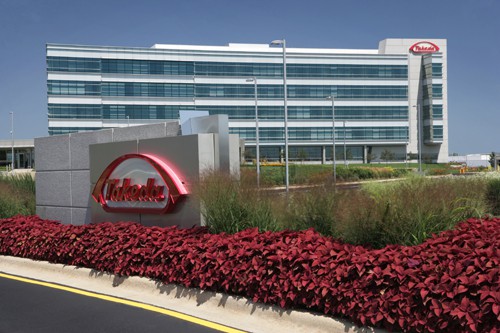
Takeda’s ‘build to buy’ strategy of partnering has resulted in a takeover deal for coeliac disease drug developer PvP Biologics.
Takeda isn’t disclosing the value of the deal, but says it includes an upfront payment plus up to $330m in development and regulatory milestones.
The acquisition has been triggered by positive phase 1 results with TAK-062 (Kuma062), described as a “super glutenase” that breaks down gluten that is ingested in the diet. Takeda signed an option agreement on the product in 2017 in return for $35m.
Coeliac disease is a common autoimmune condition characterised by inflammation of the small intestine, causing diarrhoea, abdominal pain and bloating, as well as impairing the ability to absorb nutrients from the diet.
People with the disease can try to manage it by avoiding gluten-containing foods, but some still experience symptoms despite this approach and for them there is no fallback treatment option, according to Asit Parikh, who heads up Takeda’s gastroenterology unit.
“TAK-062 is a highly targeted therapy that could change the standard of care in coeliac disease,” he said. The orally-active drug is designed to degrade the immune-reactive parts of gluten before they exit the stomach, and will now be advanced into a phase 2b trial.
TAK-062 is the second coeliac disease therapy licensed by Takeda in the last few months, after it snapped up worldwide rights to COUR Pharma’s CNP-101/TAK-101 for up to $420m on the strength of phase 2b data.
TAK-101 takes the form of biodegradable nanoparticles containing gliadin protein – delivered by intravenously in two infusions given two weeks apart – that are designed to block gluten-induced immune activation. Positive phase 2 results were reported at the United European Gastroenterology Week in January.
The approach taken with the PvP partnership mirrors Takeda’s agreement almost three years ago with UK biotech GammaDelta, with cash injected into the company in return for a buyout option if proof-of-concept studies go as planned.
Takeda paid up to $100 million in funding to deploy GammaDelta’s T cell platform to find new therapies for cancer and autoimmune/inflammatory diseases.
The build to buy model has fallen out of favour of late on the grounds that it can put a brake on nimble decision-making at the target company, and also because there has been plentiful financing around for start-ups who want to maintain their independence.
There has been a flurry of licensing deals in the coeliac disease area in recent months, including deals between GlaxoSmithKline and Sitari and Roche/Genentech and Parvus, as drugmakers eye a potentially lucrative market for a disease that affect millions of people around the world and has no approved therapies.
Hopes of a treatment breakthrough were dashed last year when one of the frontrunners in new drug development – ImmunsanT – abandoned its coeliac vaccine candidate Nexvax2 after a failed phase 2 trial.




